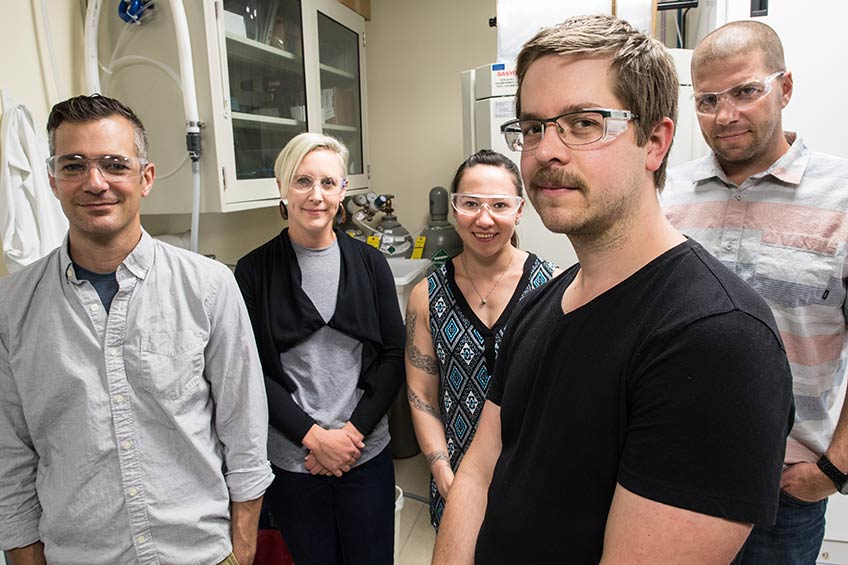Potential of a Fast-Growing Algae Strain Revealed Through NREL Research
A newly characterized strain of microalgae isolated by scientists at the National Renewable Energy Laboratory (NREL) and Colorado School of Mines may prove well-suited for outdoor cultivation, due to its ability to thrive at high temperature and in saltwater, while rapidly converting carbon dioxide into renewable biomass.
Algae produce storage carbon, which can be converted into renewable biofuels and platform chemicals. The ideal strains need to grow quickly and thrive in harsh conditions, such as intense heat, sunlight, and hyper-saline waters. Current model algal systems haven’t been suitable for outdoor cultivation.

“Much of the foundational basic science in microalgae is being implemented in strains that are not suitable for outdoor cultivation, and many of the strains that are being used for outdoor cultivation don’t have viable genetic systems that allow you to do foundational biology. The work we conducted here was a marriage of those two pursuits, enabling rapid genetics in a deployment-relevant alga,” said Guarnieri, who holds a Ph.D. in biochemistry and molecular genetics.
Lukas Dahlin, a doctoral candidate in the Chemistry Department at the Colorado School of Mines and lead author of the paper, spent about 18 months studying hundreds of NREL’s algae strains to find ideal candidates for further research. “The strain is being tested outdoors and it’s showing promising results, with sustained productivity amongst the highest reported to date,” said Dahlin, who is conducting his thesis work at NREL under the co-supervision of Guarnieri and Mines Professor Matthew Posewitz. Additionally, “it’s important for the algae to thrive in saltwater, which offers greater sustainability and better economic viability relative to freshwater,” said Lukas.
First classified in 2004, the genus Picochlorum has become known for its fast growth and tolerance to saltwater, high-light intensity, and heat. However, this marks the first time that researchers have been able to provide greater understanding of its biomass composition, ability to thrive in saltwater, and to be rapidly genetically modified. NREL scientists named the particular algae species Picochlorum renovo—with renovo coming from a Latin word meaning “renew.”
Following identification of the strain, Guarnieri’s team went on to develop genetic tools, which can now be utilized to improve its performance. Genetic modifications can be made in as little as a week, compared to several weeks for some other strains. Picochlorum renovo has a doubling time of about 2.2 hours, which is five to 10 times faster than many algae currently under investigation. “The fast growth of this algae may be, in part, attributable to its ability to undergo cell division both day and night, coupled to a relatively compact genome,” Guarnieri said. “That’s somewhat unique in the world of microalgae.”
The research findings were published in the journal Communications Biology. Other co-authors from NREL are Alida Gerritsen, Calvin Henard, Stefanie Van Wychen, and Jeffrey Linger. Additionally, other researchers from the Colorado School of Mines and from Los Alamos National Laboratory were involved with the study.
The research was supported by the Bioenergy Technologies Office of the U.S. Department of Energy.
Last Updated Jan. 22, 2026
